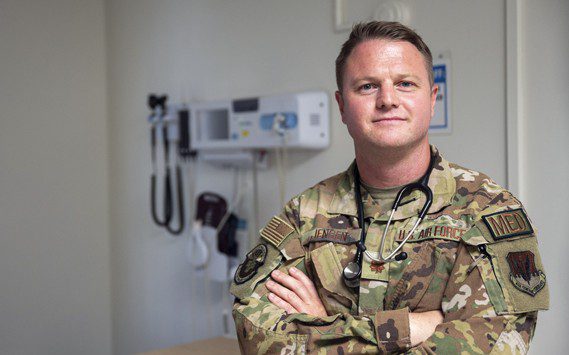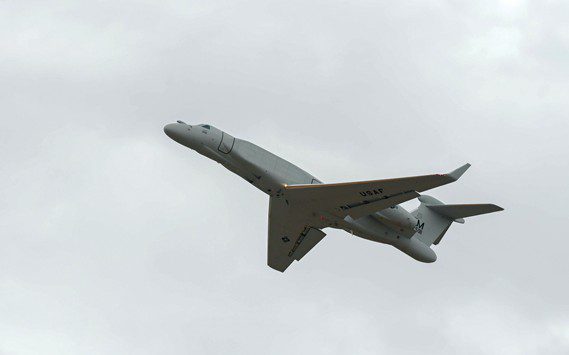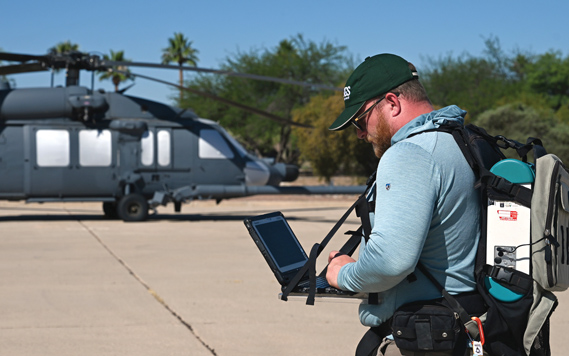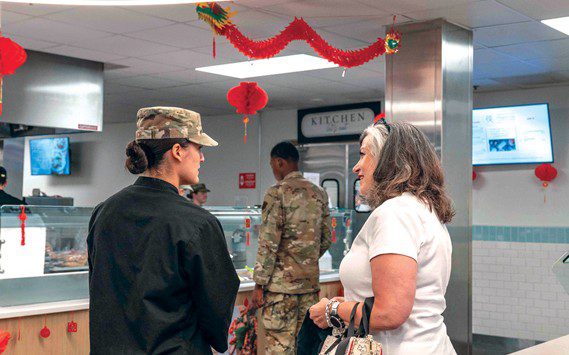JOINT BASE SAN ANTONIO – RANDOLPH, TEXAS — Confucius once said that in order for a man to move a mountain he must first begin by carrying away its small stones. Now, if one is to imagine the Air Force as that giant mountain, how does an Airman begin trying to move it? That is, if someone wants to effect change across the Air Force, how does he or she go about doing so?
It begins by carrying away the small stones. That is the point of Air Force Smart Operations – or AFSO.
In November 2005, then Secretary of the Air Force Michael Wynn unveiled the tenets of AFSO in a Letter to Airmen emphasizing the need to eliminate waste engendered by antiquated processes and encouraging Airmen to develop new practices that significantly increase the Air Force’s combat capabilities. The vision was that continuous process improvement (another term for AFSO) would be in the DNA of every Airmen.
“Many folks see AFSO as only a program. They’re wrong,” said Jerardo A. Perez, Deputy Director of Studies, Analysis, and Assessment Headquarters for Air Education and Training Command. “In its simplest form, AFSO is a deliberate recipe for solving today’s challenges or enhancing current operations.”
AFSO is not just another program; nor is it an amalgamated rehash of previous cost-saving efforts. The underlying principles that guide AFSO are universal. AFSO is a culture and a mindset for improving the Air Force by making small changes to processes, just like moving a mountain one small stone at a time.
“Everything we do, whether at home or at work, is made up of processes,” said Charles Wyatt, Headquarters Air Education and Training Command’s AFSO Master Process Officer. “At least 90 percent of those processes contain waste that can be removed by applying the AFSO continuous process improvement tools. However, sadly too many people insist on performing their duties the same old way they learned them many years ago when money, manpower and equipment were much more abundant.”
But in today’s resource-constrained environment, people must innovate and apply AFSO tools to help close those resource gaps.
“So, when faced with limited resources such as the recent sequestration in the spring of 2013, the first question most leaders asked their Airmen was, ‘What should we stop doing?’ When the question should be, ‘If we remove as much waste from our process as possible, how much of our mission can we still achieve given current resources?’
“I think commanders would be really surprised to see how much waste their mission processes currently have and once removed, how efficient they can become without having to ‘stop doing’ anything,” Wyatt added.
While there was relief from sequestration for fiscal years 2014 and 2015, the Budget Control Act (BCA) of 2011 is still law and remains in effect for FY 2016. Without relief from the BCA, the Air Force will once again be forced to operate at decreased budget levels. If or when that happens, AFSO should be the first toolbox rolled out for Airmen to find ways to deal with any coming resource constraints while also increasing efficiencies across the service.
“Now more than ever, we have to work a problem, solve it and move on to the next one,” said Maj. Gen. Leonard Patrick, Air Education and Training Command vice commander. “I’m a big fan of AFSO. It’s a process on how to think and do real analysis in solving problems versus answering a suspense.
“A long time ago, someone told me we never have enough time to do something right the first time, but we always have the time to do it right the second time – that’s something I don’t want us to do. Innovative Airmen power the Air Force and AFSO tools help Airmen avoid doing just that,” Patrick said.
Recently, an AFSO event was held for AETC chaplains and chaplain assistants to help establish means for improving chaplain engagement with Airmen throughout the command. The event focused on how the chaplain corps should move from a chapel-based commitment to a unit-based engagement with Airmen, specifically during times of budget and personnel cuts. Addressing this challenge is a continuous process that’s just begun.
AFSO has had varying successes since its inception in 2006, Wyatt said. However, a way to test AFSO’s claims is simply to try them.











